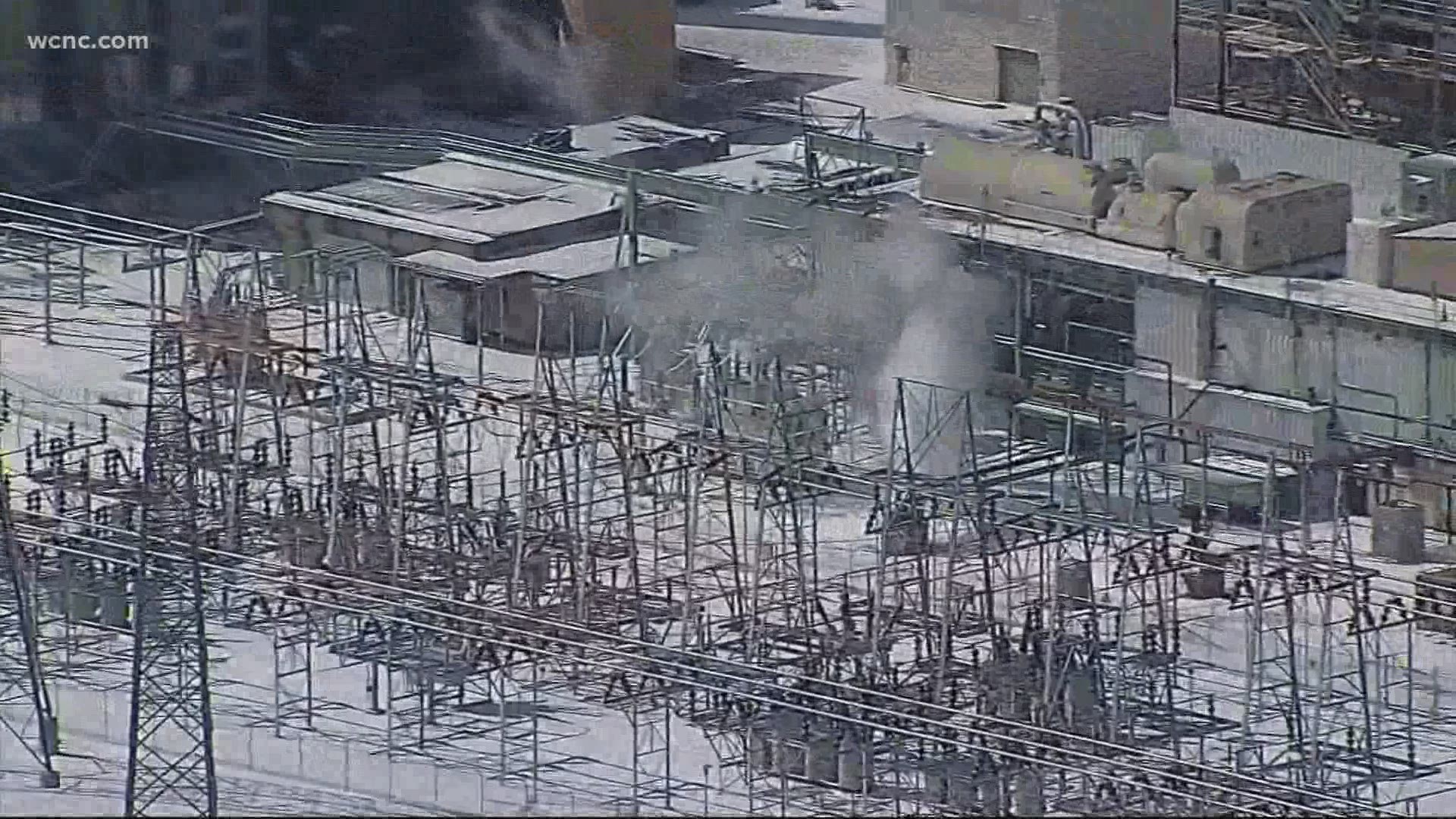CHARLOTTE, N.C. — Duke Energy said they project nearly 1 million power outages in the Carolinas as a winter storm brings freezing rain and ice to the region Thursday.
This weather system also wreaked havoc in Texas, helping to keep millions of people in the dark, without heat, this week. Texas Gov. Greg Abbott said Wednesday that "every source of power in Texas has been compromised."
Should the Carolinas be bracing for a similar experience?
"All employees are really on high alert because this has the potential to be a significant icing event," said Renee Whitener, with Blue Ridge Energy, which serves the North Carolina High Country. "This situation is different than Texas though."
On Monday, with demand for electricity exceeding supply, the Electric Reliability Council of Texas (ERCOT), which handles roughly 90% of the state's energy production, started rolling blackouts.
"The electric grid across much of Texas, not all of it, is much more self-contained than us here in the Carolinas," Ian Giammanco, Lead Research Meteorologist at the Insurance Institute for Business and Home Safety, said. "We're on a much broader grid. So, their ability to move power from place to place is more limited."
In many ways, Giammanco said what is happening in Texas is a perfect storm.
"It just becomes a cascade. You start adding the layers on top of it: the ice storm, then the trees (falling on power lines), then people really needing to run their heat all the time, and our electric heaters aren't as efficient in these very, very cold temperatures," Giammanco said. "It just starts a cascade, and it led to the catastrophic situation we're seeing right now."
Giammanco said while there are some similarities in the two states' situations, there are key differences that should set the Carolinas up for better success.
"We will see the tree problem. We have lots of large trees. Pines are extremely susceptible to ice damage," Giammanco said. "We're going to see trees fall on power lines, but these larger grid problems, I think we'll be in a good place to handle it."
Giammanco said the situation is a good reminder to be more proactive and get ahead of these weather events with preparation.
"Unfortunately, we have far too many 'what-ifs,'" Giammanco said. "We can turn this around. We can turn these events into just a nuisance."

